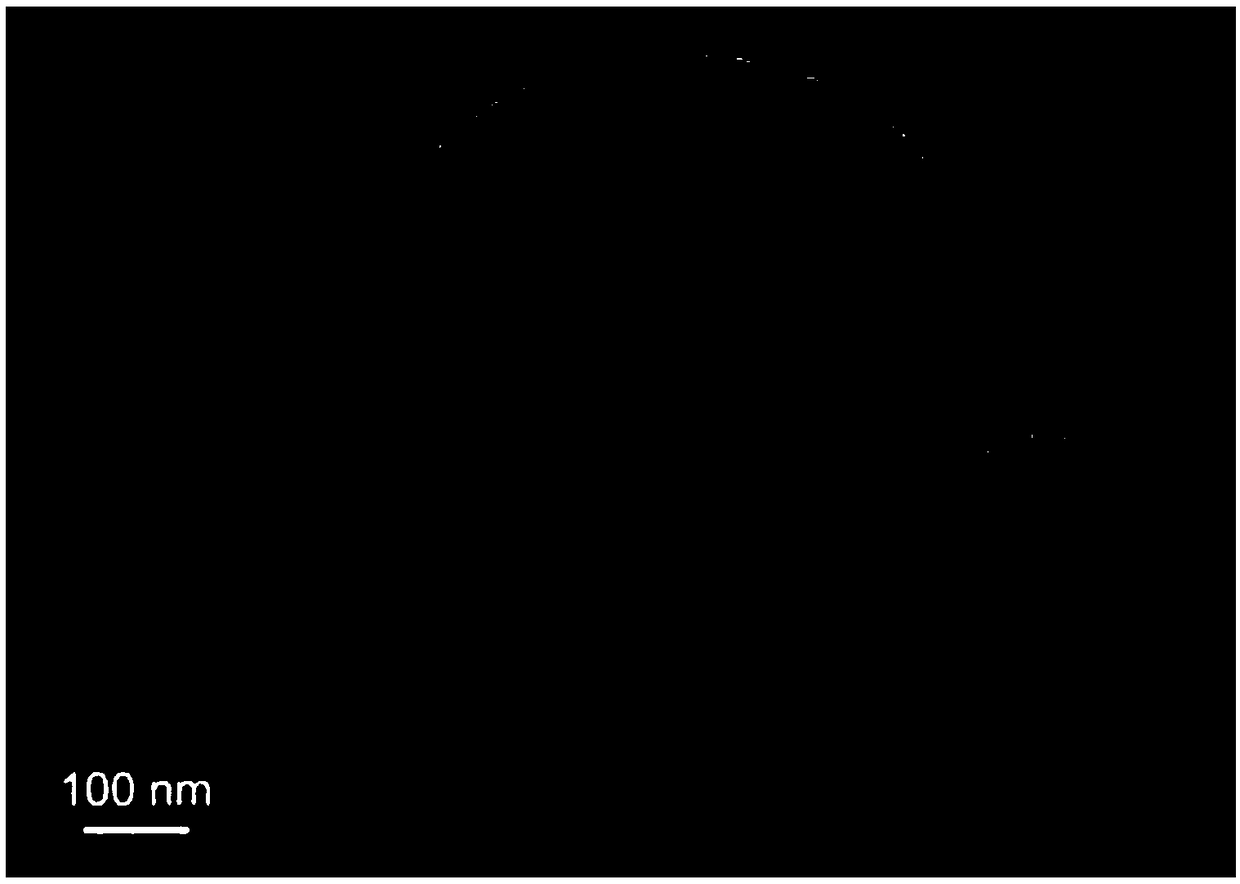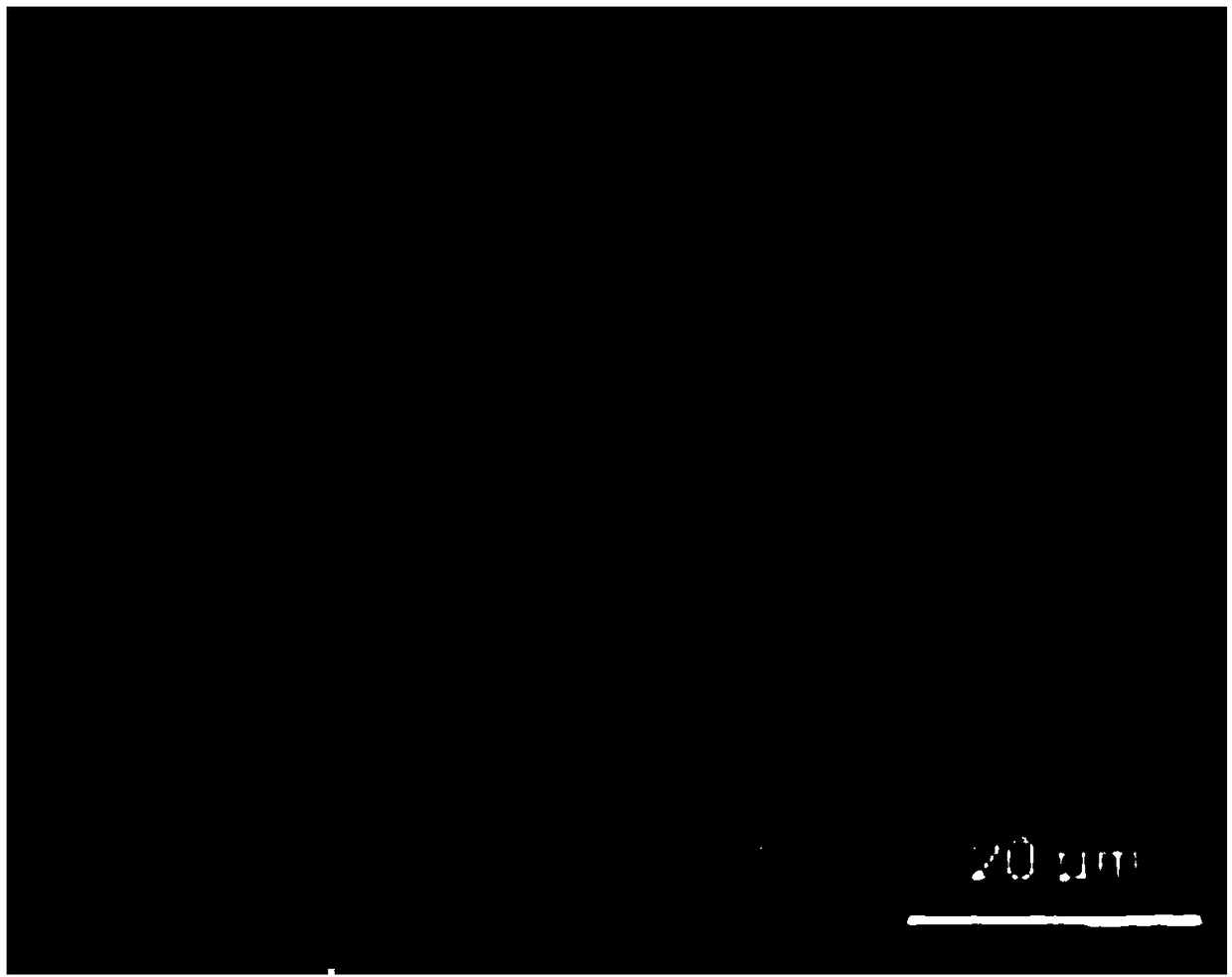Method for preparing anisotropy heat conduction block material by Gibbs free energy induction
An anisotropic, heat-conducting block technology, applied in the direction of chemical instruments and methods, synthetic resin layered products, layered products, etc., can solve the problems of low heat conduction efficiency of heat-conducting materials, achieve high speed, increase longitudinal thermal shock frequency, The effect of high heat transfer efficiency
- Summary
- Abstract
- Description
- Claims
- Application Information
AI Technical Summary
Problems solved by technology
Method used
Image
Examples
Embodiment 1
[0028] (1) Take 20g of boron nitride powder as the raw material, and add 1.0g of polyvinylpyrrolidone into 300mL of N-methylpyrrolidone (NMP), and stir for 50min until completely dissolved.
[0029] (3) Take 300g of the mixed solution in step (2) and add it to the grinding equipment with balls, rods or segments as the medium, and grind for 20 hours to obtain oligolayer boron nitride with a concentration of 50mg / mL. See the attached electron transmission photo. figure 1 .
[0030] (4) Take the above 100mL boron nitride dispersion and mix it with the polymer material polypropylene, add sodium dodecylbenzenesulfonate equivalent to the dispersant grade, and stir mechanically for 30 minutes to obtain a two-dimensional nanomaterial dispersion.
[0031] (5) Using the spin centrifugal coating method, uniformly attach a layer of flat liquid film on a substrate with a diameter of 3 cm, place the substrate carrying the flat liquid film under a nitrogen system, and volatilize the solvent ...
Embodiment 2
[0034] (1) Weigh 1g of graphene powder and 1.0g of polyvinyl alcohol into 100mL of N-methylpyrrolidone, stir under ultrasonic waves for 60min until completely dispersed and dissolved.
[0035] (4) The graphene dispersion liquid of above-mentioned 100mL is mixed with macromolecular material polyethylene terephthalate, adds the hexadecyltrimethylammonium bromide of dispersant grade equivalent, mechanically stirs 30min under the ultrasonic wave to obtain two Dimensional nano material graphene dispersion.
[0036] (5) Using the spin centrifugal coating method, uniformly attach a layer of flat liquid film on a substrate with a diameter of 3 cm, place the substrate carrying the flat liquid film under a nitrogen system, and reduce the relative humidity of the solvent in the nitrogen atmosphere to 75%, The solvent in the liquid film is volatilized to gradually solidify it, thereby fixing the ordered structure inside the nano film inside the film.
[0037] (6) Stack the thin film laye...
Embodiment 3
[0039] Cut out each 1*1*0.3cm of the heat-conducting block materials prepared in Examples 1 and 2 2 , using the DZDR-R heat flow method to measure the thermal conductivity respectively, the thermal conductivity of the boron nitride-based thermally conductive block material is 5300W / (m·K), and the thermal conductivity of the graphene-based thermally conductive block material is 4900W / (m· K).
PUM
| Property | Measurement | Unit |
|---|---|---|
| thickness | aaaaa | aaaaa |
Abstract
Description
Claims
Application Information
 Login to View More
Login to View More - R&D
- Intellectual Property
- Life Sciences
- Materials
- Tech Scout
- Unparalleled Data Quality
- Higher Quality Content
- 60% Fewer Hallucinations
Browse by: Latest US Patents, China's latest patents, Technical Efficacy Thesaurus, Application Domain, Technology Topic, Popular Technical Reports.
© 2025 PatSnap. All rights reserved.Legal|Privacy policy|Modern Slavery Act Transparency Statement|Sitemap|About US| Contact US: help@patsnap.com



